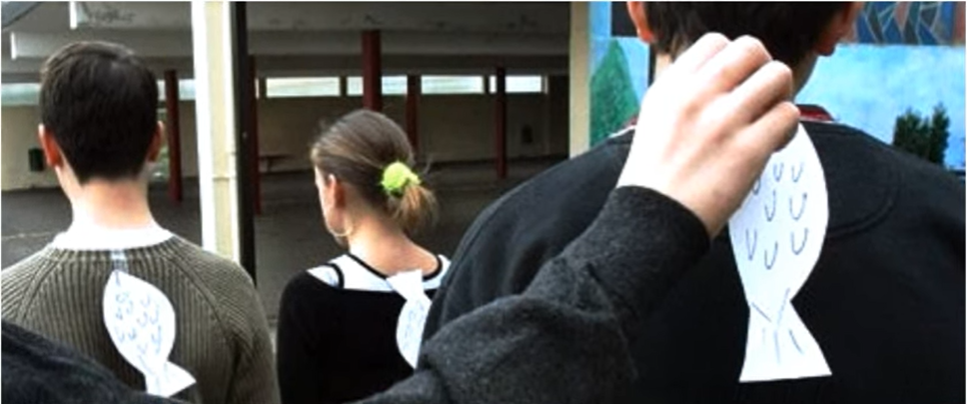
OpEds

April Fool’s is a funny way of surviving 2025
The first of April rolls around, and suddenly everyone’s a comedian. The world transforms itself into a playground of trickery and laughter, and we all agree to be ridiculous for 24 hours.
But I’ve been wondering: does it play out differently if you’re Jewish? With our own calendar and a knack for laughing through tough times, maybe there’s a Jewish twist to this whole fooling-around business?
First off, April Fool’s Day isn’t exactly a Jewish invention. The day’s roots are murky, tangled in folklore and historical shifts. One popular theory ties it to 16th-century France, when the adoption of the Gregorian calendar moved New Year’s Day from late March or early April to 1 January. Those who clung to the old dates – celebrating the new year around 1 April – were mocked as “April fools” by their more calendar-savvy peers. Pranks, like sending people on fool’s errands or sticking paper fish on their backs – a French tradition still alive today – emerged as playful jabs at these hold outs. Another thread points to medieval Europe’s Feast of Fools, a Christian festival where social norms flipped and jesters ruled the day. But for us Jews at the time, we were busy dodging Easter mobs or gearing up for Passover, not exactly in on the gag.
Still, as Jews, we’ve been laughing forever. If April Fool’s is to have a Jewish cousin, it must be Purim. The holiday of costumes, satire, and revelry feels like a spiritual ancestor to April’s mischief. Purim flips the script – Haman’s downfall becomes a triumph, celebrated with shtick-like mock trials and Purim shpiels (parody plays). Some Jewish writers or communities might draw a loose connection, noting both as times of sanctioned silliness. However, Purim has a deep religious and historical basis – commemorating the deliverance of the Jewish people from Haman’s plot in ancient Persia – while April Fool’s Day is purely secular.
Traditional Jewish teachings don’t address April Fool’s Day specifically, as it’s a modern, non-Jewish custom. Some rabbis might discourage excessive pranks if they violate principles like ona’at devarim (causing emotional harm through words) or geneivat da’at (deception), but there’s no blanket prohibition. Observant Jews probably treat the day as a neutral cultural phenomenon, neither embraced nor condemned.
Humour taps into something primal. Psychologists suggest it’s a safe outlet for our trickster instincts, a nod to the archetype of the jester. Jewish humour is often self-deprecating or satirical, seen in figures like Yiddish comedians or modern Jewish entertainers. Our humour has always been about surviving the crazy – laughing at Pharaohs, pogroms, you name it. That famous quip summarising every Jewish holiday in nine words: “They tried to kill us, we survived, let’s eat.” April Fool’s fits that, a break from the grind, especially in 2025, with everything feeling so intense. A pretend “World peace!” headline might hit hard when it’s fake, but for a second, it’s a relief. Just don’t cross the line. Jewish ethics nix anything mean. No lashon hara (gossip) here. Jewish lens says keep it kind, maybe a nod to simcha (joy).
Pranks have come a long way since paper fish. Today, it’s all internet chaos – fake X posts, corporate stunts. This year, Lego Group announced that it was removing instruction manuals. Nappy brand Rascals claimed to be launching a new range that would play a jingle every time it sensed a tinkle of a different kind. Hyundai celebrated the launch of Mobilet, a sort of Uber for toilets – a self-driving cubicle that’s summoned by app to come and meet you in your moment of need. It seems some fell for these jokes!
The April Fool’s phenomenon shows no signs of fading. If anything, it’s evolving – artificial intelligence might craft pranks we can’t yet imagine, from holographic “alien landings” to personalised hoax texts. With it falling this year near Passover preparations, the inevitable prank “Matzah found to cure all ills!” made the rounds, though the war-weary mood, especially in Israel, has muted festivities.
Israeli brands have been known to partake in a satirical social media post or two in honour of April Fool’s. Last year, the Academy of the Hebrew language (AHL) announced that a new letter had joined the Hebrew alphabet. Titled a “scratched tsade”, the Academy said it appeared as a mirror image of the Hebrew letter tsade, which makes the “ts” sound, and supposedly represented the “ch” sound, which, until now, had been represented by a tsade followed by an apostrophe. According to the AHL, the decision was made based on a new discovery in the Dead Sea Scrolls, where the letter supposedly appears in three different instances.
As for myself, I had fun with ChaiFM radio announcing that I would be hosting a three-hour afternoon drive show in Russian, to which a lot of listeners responded in disbelief. The best reaction, though, was that this story was simply borscht.
- Paula Slier is the founder and chief executive of Newshound Media International.










